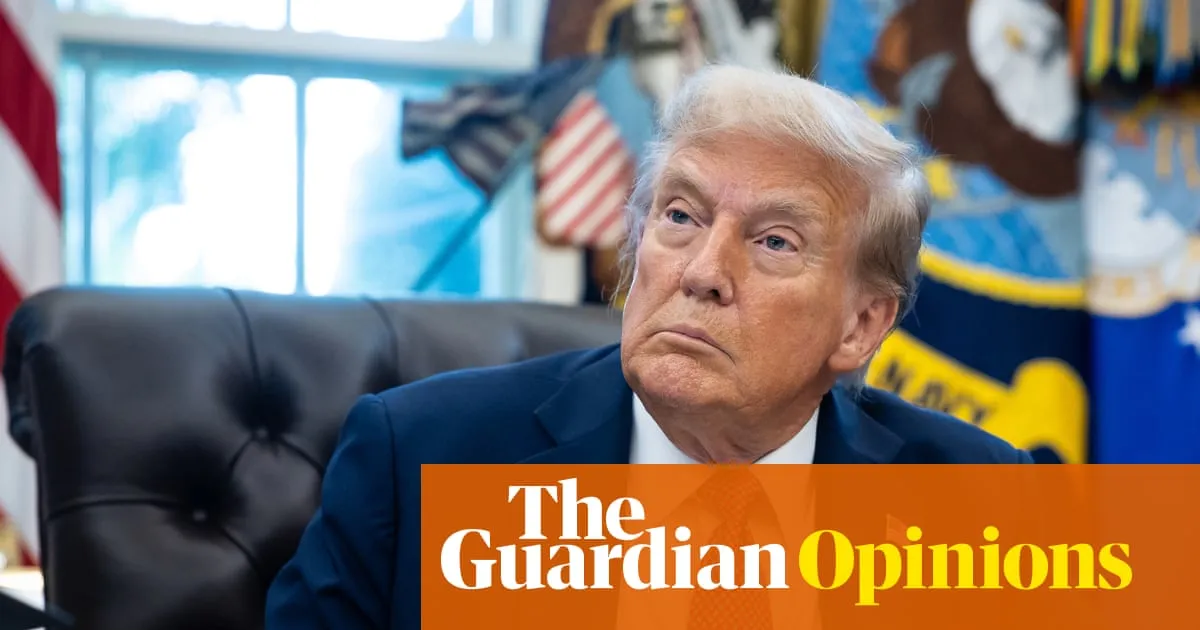
Last week, Donald Trump made a striking observation regarding his cherished tariff regime. If the U.S. Supreme Court were to strike down his tariffs, Trump suggested he might need to “unwind” some of the trade deals he established since declaring “liberation day” in April. This comment reiterates the reality that nothing about Trump’s economic policy remains fixed. The aging president is known for altering his demands on a whim, leaving many to question the extent of his influence over these policies.
Even if the “reciprocal” tariffs first announced on April 2 are rolled back, they represent just one element of a broader assault on the remnants of what was once termed the “Washington Consensus”. Trump's recent interventions include taking a 10% government stake in the U.S. technology giant Intel, demanding 15% of Nvidia’s chip sales revenue to China, and suggesting the ousting of the Goldman Sachs Chief Executive. Simultaneously, he has attacked the independence of the Federal Reserve by publicly criticizing its Chair, Jerome Powell, and attempting to remove Lisa Cook from the central bank’s board.
Trump's administration has also seen the removal of the head of the Bureau of Labor Statistics following disappointing jobs data, as well as the dismissal of Jennifer Abruzzo, the chief of the National Labor Relations Board. These actions reflect a systematic yet chaotic approach, aimed at dismantling existing norms while simultaneously unleashing corporate America. For instance, his supporters in the tech industry view the NLRB unfavorably due to its role in promoting workers' rights, such as mandating unionization ballots at Amazon warehouses.
Trump's approach has elicited mixed reactions. Bernie Sanders, the left-leaning senator, welcomed Trump's stake in Intel, seeing it as a means to secure government grants—an idea he previously advocated in the Guardian back in 2022. Conversely, some Republicans have condemned this strategy as an alarming shift toward “socialism”. The current AI-driven stock boom has somewhat muted the market response to these drastic changes, but the overall outlook points to a significant transformation of the U.S. economic model.
The transformation of the U.S. economic landscape did not occur overnight. The era when the U.S. stood as the world's undisputed economic superpower, promoting free-market capitalism globally, has long passed. The 2008 financial crisis, caused by practices in Wall Street boardrooms, severely undermined any moral or practical credibility the U.S. had to offer as an economic example to other nations. The crisis exposed the vulnerabilities of turbocharged capitalism, revealing risks not only to the U.S. but also to countries that had previously adopted this model.
As noted by Ivan Krastev and Stephen Holmes in their insightful work, The Light that Failed, the confidence in the Western political economy as a model for the future was linked to the assumption that its elites were competent. The 2008 crisis shattered that illusion, leading to widespread disillusionment, particularly as the perception grew that banks were rescued while those responsible for the crisis went unpunished.
Even before the crisis, the notion that expanding free trade generates economic benefits was being challenged. Although free trade may yield aggregate benefits, it often comes at the cost of deindustrialization and unemployment for workers in the U.S. rust belt and the UK's former manufacturing hubs. This environment provided fertile ground for Trump’s populist economic message, which sought to redirect the focus back to American interests.
Trump's initial tariffs on China were a modest attempt to recalibrate the economic playing field in favor of the U.S. Interestingly, Joe Biden did not reverse these tariffs, as they aligned with geopolitical realities. Hopes that economic liberalization would integrate China into a community of democracies have been dashed, especially as President Xi’s regime has adopted increasingly authoritarian measures. Biden too has embraced a strong state role in the economy, exemplified by the billions in grants and loans allocated under the Inflation Reduction Act aimed at reducing carbon emissions and creating jobs.
The narrative that free-market capitalism in the U.S. was unchallenged before Trump's presidency is misleading. However, the pace at which Trump is dismantling its remaining norms is unprecedented. There is substantial room for debate surrounding his policies, particularly as taxpayer stakes in strategic companies are more prevalent in European economies. Trump’s actions could potentially pave the way for future U.S. governments to follow a similar path, albeit with different priorities.
Currently, the overriding sentiment is one of radical uncertainty. The recent weak U.S. payrolls data, with the unemployment rate nearing a four-year high, suggests that companies may be exercising caution in their hiring practices. Investors seem to be looking away from these economic challenges, buoyed by anticipated Federal Reserve rate cuts and the soaring returns of tech companies. However, as each chaotic week unfolds, the risks associated with Trump's economic approach are likely to escalate. The UK’s experience following the Liz Truss debacle serves as a cautionary reminder: economic credibility can be lost much more rapidly than it can be restored.